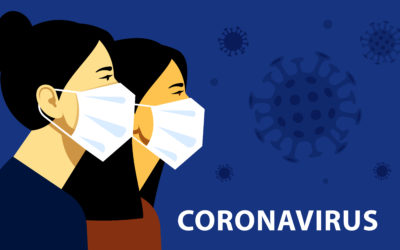Social distance yourself from COVID-19 scams
Whenever there is a natural disaster, there are always people who prey on those who want to help. Today, the disaster is a pandemic. Many are fearful, many are scared. It makes us especially vulnerable.
The FTC has warned Americans to beware of the potential scams that are proliferating. Here are some precautions to take that will keep you safer:
- Hang up on robocalls, and don’t press any numbers. Scammers are using illegal robocalls to pitch fraudulent COVID-19 treatments and work-at-home schemes. Press a number to be removed from a list and you’ll likely get more calls. If you receive a call on your iPhone, you can block any future calls from that number.
- Ignore online offers for vaccinations and unproven home test kits. Neither of these have been developed so certainly this is a scam.
- Ignore texts and emails about cash from the government. Stimulus checks will be forthcoming, but, per the FTC, anyone who tells you they can get you the money now is a scammer. Besides, if the government wants to send you a check, trust me, they’ll know where to send it.
- Please be leery of emails that claim to be from Centers for Disease Control and Prevention (CDC) or experts that claim they have information about the virus. These folks are too busy working in a lab and don’t have time to send you an email. For the most up-to-date information about coronavirus, visit the websites of the CDC or the World Health Organization (WHO).
- On the same note, malware and phishing scams are on the uptick. Legitimate companies will never ask you to verify passwords or usernames via an email. Fraudsters will.
- Do you see misspelled words or grammatical mistakes? That’s a sure sign that the official-looking email originated from a suspicious source. For some reason, scammers have horrible grammar.
Here’s a warning from the Securities and Exchange Commission (SEC) that was updated on March 30:
Fraudsters often use the latest news developments to lure investors into scams. We have become aware of a number of Internet promotions claiming that the products or services of publicly traded companies can prevent, detect, or cure coronavirus, and that the stock of these companies will dramatically increase in value as a result.
The stock of any company that has products or services that can prevent, detect, or cure coronavirus has already increased. You’re too late!!
Please be aware of the substantial potential for fraud at this time.
Please be careful. We are living in uncertain times. While I am confident this will pass, uncertainty breeds fear, and there are criminals all over the world ready to cash in on your fear.
How to spend your free money
Four in 10 adults say they would struggle to come up with $400 in an emergency, according to the Federal Reserve’s annual check-in on Americans’ financial health. Well, most are about to get at least $1,200 after passage of the stimulus bill designed to ease the economic downturn that is occurring. Throw in $500 per child and a family of four nets $3,400.
Are you eligible? For singles, $1,200 is phased out between $75,000 and $99,000 in adjusted gross income. For married folks, the range is $150,000 to $198,000.
So, how will you spend your windfall? I’d like to say that you should go and spend it. It’s designed to help the economy. And you may decide to make purchases from a small business in your neighborhood. Undoubtedly, they need the help.
But let’s consider the underlying financial principles that drive your balance sheet.
Do you need a rainy-day fund? Do you have three to six months of emergency cash, just in case? If not, consider putting your check into savings. If you don’t expect to be furloughed, an emergency fund is one way to go.
If you have at least six months in savings, look at debts, especially high-rate credit cards. That will provide you with an immediate return.
But I would be cautious about putting your cash into student loans. Borrowers are receiving relief from the government. So you may want to hold off paying down student debt, at least for now.
Can you give it away? Are you in a strong financial position?
You may gift the check to your parents, your children, or those who are in a difficult place. When businesses reopen, consider generously tipping your server who has been out of work. Even something as simple as a lavish tip to the delivery person can generate tremendous goodwill.
When we take our eyes off ourselves, the blessings we give away rebound in our direction.



